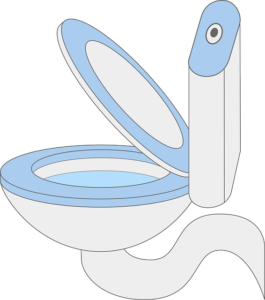Numerous men find urination to be a straightforward, routine activity that requires little thought or effort. Nevertheless, for those with shy bladder syndrome, also known as paruresis, this apparently innocuous task can become a source of overwhelming anxiety and embarrassment.
Shy bladder in males is characterised by difficulty or inability to urinate in public restrooms or in the presence of others, frequently resulting in feelings of embarrassment and isolation. While shy bladder can have substantial effects on daily life, it can also have profound effects on sexual function and intimacy.
Men with paruresis may avoid intimate situations out of dread that their condition will be revealed, resulting in strained relationships with partners and diminished sexual satisfaction. This article examines the causes of bashful bladder syndrome in men and its impact on sexual health and intimacy. We will also discuss prospective treatment options for those afflicted by this difficult disorder.
What Exactly Is Shy Bladder Syndrome?
 Shy Bladder Syndrome affects men of every age. Recent studies estimate that approximately 7% of the male population in the United States is affected by this disorder. This statistic emphasises the significance of comprehending and addressing this problem.
Shy Bladder Syndrome affects men of every age. Recent studies estimate that approximately 7% of the male population in the United States is affected by this disorder. This statistic emphasises the significance of comprehending and addressing this problem.
The primary cause of Shy Bladder Syndrome is anxiety or dread of urinating in public or in the presence of others. It can be provoked by social situations, such as using public restrooms or entertaining guests at home. Some individuals may experience mild discomfort, while others may be unable to urinate outside of their residences.
The symptoms of shy bladder syndrome include difficulty initiating or maintaining urine flow, feeling agitated or anxious when attempting to use the restroom in the presence of other people, and avoiding situations in which one may need to use a public restroom.
This condition, if left untreated, can result in humiliation and avoidance behaviours that negatively impact quality of life.
The psychological impact of urinary reticence in men
Shy bladder syndrome is a condition that affects a significant number of males. The inability to urinate in public or social settings due to anxiety and dread of being observed or judged.
Despite the fact that this condition can be frustrating and embarrassing for those who have it, there are methods to manage its effects. Among the coping strategies for shy bladder syndrome is obtaining professional assistance.
Individuals can learn how to manage their anxiety symptoms related to urinating in public through therapy sessions administered by mental health professionals. These sessions may incorporate cognitive-behavioral therapy (CBT) techniques, such as exposure therapy, in which individuals progressively expose themselves to increasingly difficult situations until they become desensitised.
The psychological effects of shy bladder syndrome should not be minimised, as it can result in feelings of isolation and humiliation. Due to their dread of being unable to use the loo in front of others, men with this condition may avoid all social activities and experience difficulties with intimacy.
Therefore, it is crucial for males experiencing these symptoms to seek assistance in order to improve their mental health and ultimately feel empowered when confronted with trigger situations.
Shy Bladder And Erectile Dysfunction
The condition of shy bladder can have an effect on sexual function and intimacy. One way this may occur is through performance anxiety.
Men with bashful bladder are frequently self-conscious about their ability to urinate in public or even private places where others may hear them. This can result in feelings of inadequacy and failure anxiety, which may manifest in other areas of their lives, such as sexual activity.
This can make it difficult for men with a bashful bladder to maintain an erection or achieve orgasm during sexual activity. It is possible for urinary function-related performance anxiety to spill over into broader concerns about sexual performance, creating a cycle of anxiety that interferes with enjoyment and contentment.
In some instances, this may result in erectile dysfunction (ED), thereby aggravating intimacy and relationship satisfaction issues.
Despite these obstacles, there are treatment options for both shy bladder and erectile dysfunction that can enhance quality of life. For many men struggling with bashful bladder symptoms, therapy that focuses on addressing the underlying causes of performance anxiety related to urinary function can be effective.
Similarly, sildenafil (Viagra) and tadalafil (Cialis) have been shown to be effective in treating erectile dysfunction. By seeking assistance from healthcare providers and mental health professionals trained in these areas, men with these conditions can take steps towards greater self-assurance and satisfaction in their relationships and sexual experiences.
Available Therapies For Shy Bladder Syndrome
Many men suffer from the distressing condition of shy bladder syndrome. There are thankfully treatment options available to mitigate symptoms and enhance quality of life.
There are two primary categories of treatment: behavioural therapy and medication options.
Learning techniques to surmount anxiety associated with urinating in public or in the presence of others is a component of behavioural therapy. This may involve exposure therapy, in which individuals progressively confront their fear by urinating in increasingly challenging situations.
Cognitive-behavioral therapy (CBT) is another form of behavioural therapy that seeks to alter negative thought patterns that contribute to shy bladder syndrome.
Medication is an additional treatment option for bashful bladder syndrome. Anticholinergic pharmaceuticals, such as oxybutynin, tolterodine, and solifenacin, function by relaxing the bladder wall’s smooth muscle tissue. These medications may reduce the frequency and urgency of urinary issues, but they have undesirable side effects such as parched mouth and constipation.
Both behavioural therapies and medication options provide viable means for men to overcome bashful bladder syndrome. Finding an appropriate treatment plan can help patients regain control of their lives while enhancing sexual function and intimacy issues associated with this disorder. It is essential to consult with your healthcare provider about your specific situation so that they can direct you to various avenues of relief from this aggravating problem!
Coping Methods For Men Suffering From Shy Bladder Syndrome
Imagine a timid turtle cautiously testing the water before completely emerging from its carapace. This is how shy bladder syndrome, an anxiety disorder that makes it difficult to urinate in public or around others, makes males feel. Adaptation strategies are essential for enhancing life quality and sexual function.
Social anxiety and urinary hesitancy associated with a bashful bladder can be alleviated through the use of relaxation techniques. During stressful situations, deep breathing exercises, progressive muscle relaxation, and visualisation can help alleviate tension and promote tranquilly. Regular mindfulness practise may also benefit general wellbeing.
Desensitisation therapy involves progressively exposing oneself to increasingly difficult environments until he or she is able to urinate freely. Using techniques such as systematic desensitisation and inundation, a therapist can guide patients through this process. Desensitisation therapy has been shown to substantially reduce paruresis symptoms over time, although it is not necessarily a cure.
Managing paruresis does not require avoiding public facilities or feeling embarrassed about one’s natural bodily functions. With the correct coping mechanisms, relaxation techniques, and guidance from medical professionals practising desensitisation therapy, those with shy bladder syndrome can overcome their fears and experience improved sexual function and intimacy without fear or shame.
Shy Bladder Syndrome can have a significant impact on the lives of males, affecting not only their ability to urinate in public but also their sexual function and intimacy. It is crucial for men with this condition to obtain assistance from medical professionals who understand the complexities of male health.
Shy bladder syndrome can cast a shadow over even the most private moments, like a dark cloud lingering over one’s head. Men can learn to manage this condition and regain control of their bodies and relationships with the help of appropriate treatment and coping strategies.
I encourage all males experiencing symptoms of shy bladder to speak candidly with their doctors about overcoming this difficult condition.





